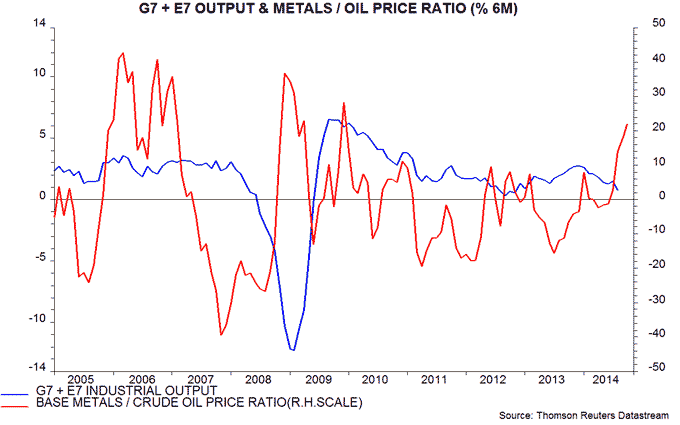Why commodities may be signalling brighter economic prospects
The recent fall in commodity prices is widely viewed as evidence of a weak global economy. Relative commodity moves, however, may signal improving economic prospects.
The Standard & Poor’s GSCI commodity price index has fallen by 12% in US dollar terms so far in 2014*. Crude oil has led the decline, dropping 16%, but food prices have also weakened – the UN Food & Agriculture Organization index is down 7%, with dairy prices slumping 29%. The poor performance partly reflects a stronger dollar – the Federal Reserve’s broad trade-weighted index has risen 5%.
Lower energy and food costs may cut the annualised rate of global consumer price inflation by about 1% at an annualised rate over the next six months, providing a significant boost to real incomes and spending power.
Commodity price weakness has not been universal. In particular, the S&P GSCI base metals index – dominated by copper and aluminium – is little changed since end-2013.
This may be significant. A softer global economy should be reflected in a generalised decline in industrial commodities. The stability of base metals suggests that the fall in crude oil has been driven by an expansion of supply more than reduced demand. Such a favourable supply shock is positive for future economic growth.
The chart shows six-month changes in global industrial output and the ratio of base metal prices to the oil price, both measured by the S&P GSCI. An increase in the ratio is usually associated with solid or rising future output growth. The current signal is positive – economic pessimism is questionable unless metal prices fall or oil rebounds strongly.
*Quoted figures are the latest available on 10 October 2014.

Reader Comments